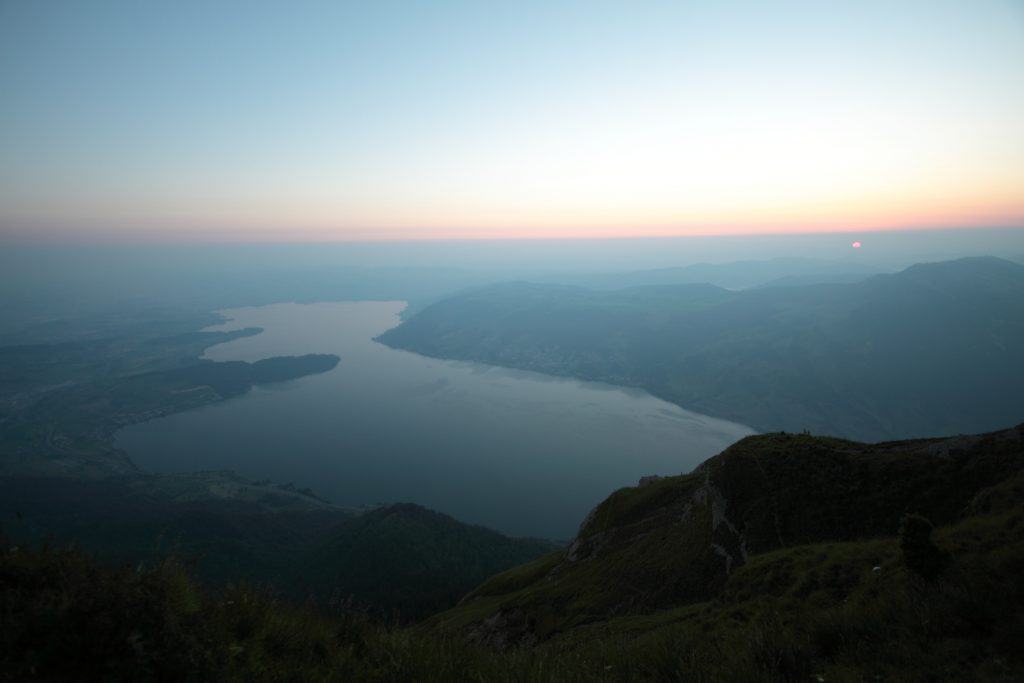
Rigi (c) CSaint Lin 2013 via Flickr (CC BY-NC-ND 2.0).
—–
Few spots still open, extended deadline January 31 2020!
—–
Public History Weekly will hold an International Public History PhD Workshop with the title “Public History in Digital Transformation” on July 2-4 2020. The venue of the workshop will be the Hotel Rigi-Kulm in Switzerland.
Objective
The Workshop will offer an international group of 12 to 14 students, who are working on or have just finished an outstanding research project in the domain of Public History, a opportunity to meet for a workshop in Switzerland and to present, discuss, evaluate and improve their projects.
Setup
The workshop will offer a small and direct setting. Aside the group of students there will be only a small group of other attendants: The keynote speakers, the organizing group and members of the Public History Weekly Editorial Board. The general public will be able to take part through Live Streamcasts of all presentations and discussions and can ask and comment through dedicated social media offers.
The students will not only offer insight into their projects by a short 20 minute presentation, but will also prepare a thorough comment of 10 minutes on an assigned project of another member of the group. After presentation and comment there will be another 20 minutes of discussion, which will include all attendees of the workshop but also the interested public that can take part in the discussion through social media.
If projects and presentation of those projects meet the publication standards, the participants will be invited to publish an article regarding their project in the Public History Weekly journal.
The participants will also be entitled to have 1 to 1 talks with members of the evaluation board to give an additional academic feedback on their project.
Call for Proposals
The call for proposals will be open for doctorate projects only. The projects must address a topic of Public History in consideration of the effects of the Digital Transformation to this domain. Applications must include the following information, but should not exceed a limit of 1000 words: Name of Project, Duration (or Start Date) of the Project, Name and Affiliation of the Supervisor of the Project, the Research Question of the Project, an Overview of the Current State of Research Significant to the Project, Used Methodology, Data Base, Hypothesis and (if applicable) (Preliminary) Results. Applications (as files with the format pdf, word or rtf) must be send in via e-mail to the following address until January 31 2020: editorialboard[at]public-history-weekly.org
Review Process
The review process of the proposals will be handled as follows: After a proposal is handed in at the organizing group, the application will be rendered anonymous and then be sent to two persons of the review board. This board consists of 6 persons which have an expert status in the field. Every application will be ranked by two review board member. The applicable criteria for the ranking are: methodological thoroughness, extent of innovative, original and „out of the box“ thinking, precision und understandability at the use of academic language.
The ranking will take place until the end of February 2020. Applicants will be informed by 28 February 2020 whether their proposals have been accepted and how much travel and accommodation costs can be covered by the organisers.
Programme (preliminary)
Thursday, July 2
- Up to 14: Arrival at Hotel, Registration, Welcome Coffee
- 15: Start. Opening speech by Marko Demantowsky
- 16: Panel 1 (Participant 1 to 3)
- 18: Keynote 1 by N.N.
- 19: Dinner
Friday, July 3
- 9: Panel 2 (Participant 4 & 5)
- 10.30: Panel 3 (Participant 6 to 8)
- 12: Lunch
- 14: Panel 4 (Participant 9 to 11)
- 17: Keynote 2 by Thomas Cauvin
- 18: Dinner
Saturday, July 4
- 9: Panel 5 (Participant 12 to 14)
- 11: Final Discussion
- 12: Lunch and Leaving
Note: The Panels will be composed either according to topical references of the projects, or by alphabetical order of the last names of the participants
Organizing Group
The Organizing Group consists of academical staff members of the Professur für Gesellschaftswissenschaften at the FHNW School of Education and of the Institute for History Education and Memory Cultures at the Universtity of Teacher Education (UTE) Lucerne. The Members of the Organizing Group are also members of either the Executive or the Editorial Board of Public History Weekly.